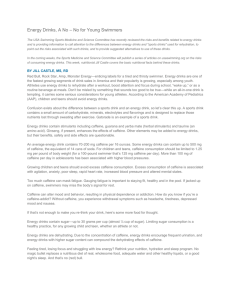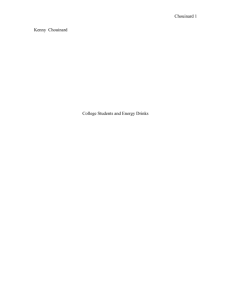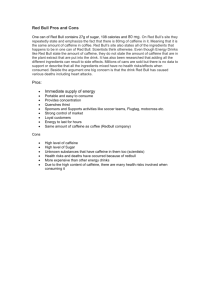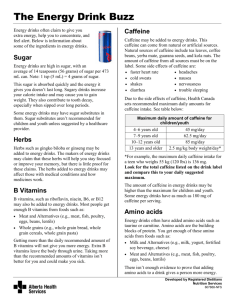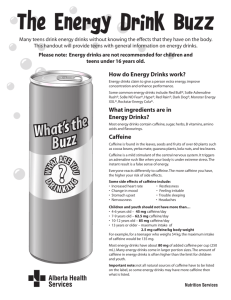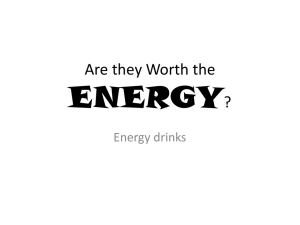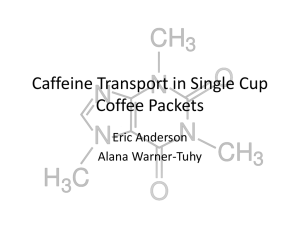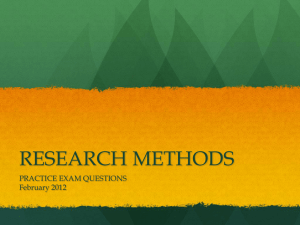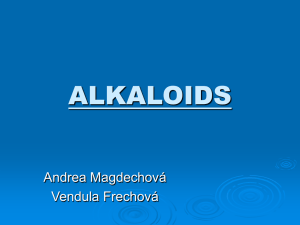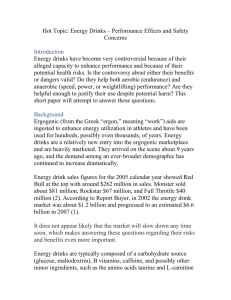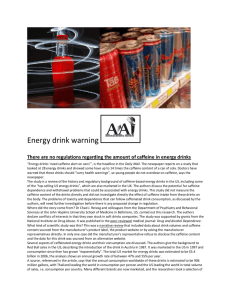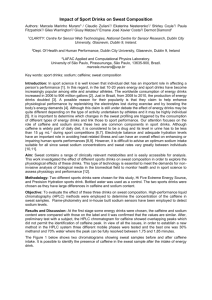Energy Drink Side Effects: Risks & Health Concerns
advertisement
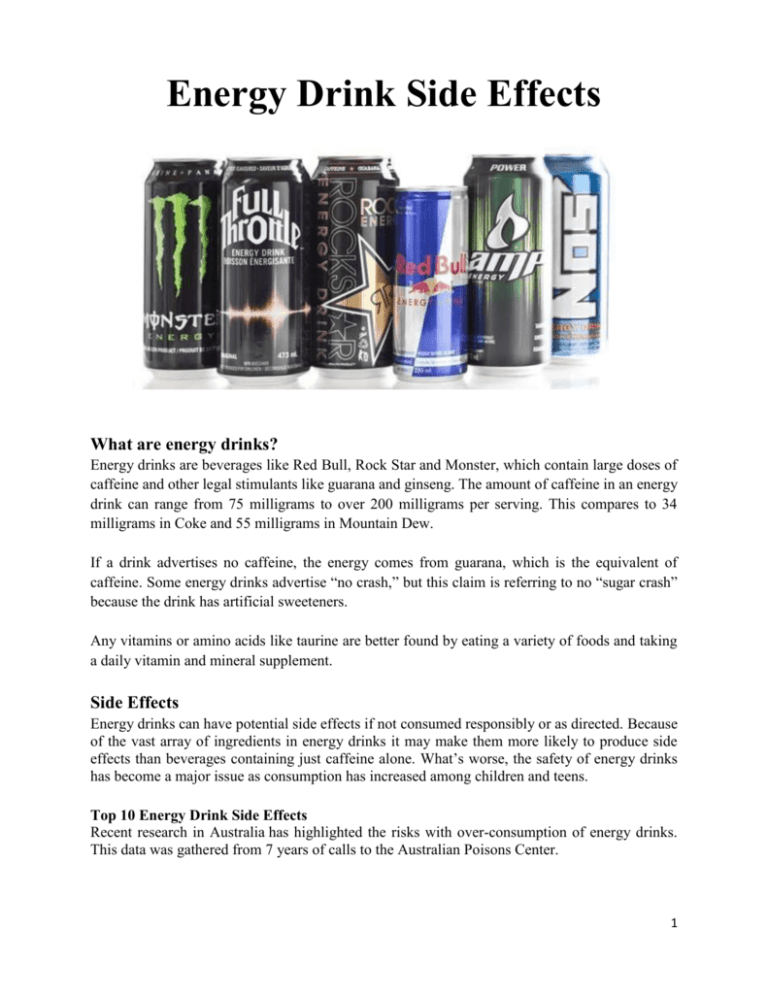
Energy Drink Side Effects What are energy drinks? Energy drinks are beverages like Red Bull, Rock Star and Monster, which contain large doses of caffeine and other legal stimulants like guarana and ginseng. The amount of caffeine in an energy drink can range from 75 milligrams to over 200 milligrams per serving. This compares to 34 milligrams in Coke and 55 milligrams in Mountain Dew. If a drink advertises no caffeine, the energy comes from guarana, which is the equivalent of caffeine. Some energy drinks advertise “no crash,” but this claim is referring to no “sugar crash” because the drink has artificial sweeteners. Any vitamins or amino acids like taurine are better found by eating a variety of foods and taking a daily vitamin and mineral supplement. Side Effects Energy drinks can have potential side effects if not consumed responsibly or as directed. Because of the vast array of ingredients in energy drinks it may make them more likely to produce side effects than beverages containing just caffeine alone. What’s worse, the safety of energy drinks has become a major issue as consumption has increased among children and teens. Top 10 Energy Drink Side Effects Recent research in Australia has highlighted the risks with over-consumption of energy drinks. This data was gathered from 7 years of calls to the Australian Poisons Center. 1 Listed in order of most common to least common: 1. Palpitations / tachycardia 2. Tremor / shaking 3. Agitation / restlessness 4. Gastrointestinal upset 5. Chest pain / ischemia 6. Dizziness / syncope 7. Paresthesia (tingling or numbing of the skin) 8. Insomnia 9. Respiratory distress 10. Headaches The Australian Center for Food Safety Adverse Event Reporting System (CAERS) received over 140 complaints about adverse side effects from 5 Hour Energy, Monster, and Rockstar over the last 10 years. Some of these resulted in hospitalization and death. Energy drinks contain supplements, herbs, and vitamins and are required to list warnings on the label about consuming more than the recommended serving. In moderation most people will have no adverse, short term side effects from drinking an energy drink, however, the long term side effects from consuming energy drinks aren’t fully understood as of yet. Potential Problems from Specific Ingredients Caffeine This is the most common energy drink ingredient and one of the most widely consumed substances in the world. Caffeine tolerance varies between individuals, but for most people a dose of over 400mg/day may produce some initial symptoms: restlessness, increase heartbeat, and insomnia. High doses of caffeine can lead to: Increased blood pressure Heart palpitations Gastrointestinal disturbance (diarrhea) Increased urination Dizziness, irritability, nausea, nervousness, jitters Allergic reactions can include; rash, hives, itching, difficulty breathing, tightness in the chest, swelling of the (mouth, face, lips, or tongue), diarrhea, shakiness, trouble sleeping, vomiting Headache and severe fatigue from withdrawal Painful withdrawal symptoms 2 Caffeine can be found in other natural ingredients such as guarana, green tea extract, and coffee extract or can go by many other names, so be aware of this when reading energy drink labels. Adrenal Fatigue Some people can become tired even after consumption of caffeine. This is believed to be a symptom of adrenal fatigue where the body’s adrenalin system has become overtaxed by the constant high caffeine intake. The solution is not to increase caffeine even more – but to reduce, detox, and get the adrenal glands back to a healthy state. Between 500 milligrams to 1000 milligrams in a 24 hour period will probably lead to some of the more severe side effects. Sugar Most energy drinks are high in sugar in the form of high fructose corn syrup and/or cane sugar. Some use creative names to make their version of sugar seem “healthier”, like “natural cane juice”. High sugar drinks are linked to obesity. Sugar causes tooth decay Increases risk of type 2 diabetes. The sugar in energy drinks causes blood sugar and insulin spikes, which later result in a “crashlike” feeling. Sugar is also somewhat addictive. When used occasionally, energy drinks are not necessarily bad for you, but they shouldn't be seen as "natural alternatives" either. Some of the claims they make like "improved performance and concentration" can be misleading. Some energy drinks have no caffeine but instead use the stimulant guarana, which is the equivalent of caffeine. Others may say that 1 can is 2 servings so you have to calculate the correct amount of caffeine. If you think of them as highly-caffeinated drinks, you'll have a more accurate picture of what they are and how they affect you. You wouldn't use Mountain Dew as a sports drink. And a drink like Red Bull and vodka is more like strong coffee and whisky than anything else. Energy drinks should not be used while exercising as the combination of fluid loss from sweating and the diuretic quality of the caffeine can leave someone severely dehydrated. Clean fresh water remains the best way of rehydrating during and after physical activity. 3
